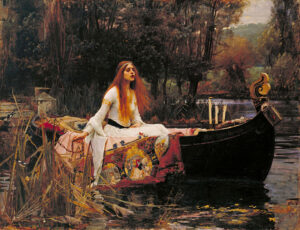Did you know that there’s a Victorian conference on poetry, literature, and history that you can watch right now for free?
This past September, the Armstrong Browning Library hosted a flightless conference in partnership with many other sites. The theme was fittingly focused on sustainability: Ecology and Religion in 19th Century Studies.

There were a lot of amazing talks on Gerard Manley Hopkins, Elizabeth Barrett Browning, the Oxford Movement, John Muir, and so many more things.
Manu Chander gave a wonderful talk and discussion about the Guyanan poet, Egbert Martin. Chander’s work on expanding 19th century poetry is something you should definitely check out.
And all of these sessions are free to watch online now. Just go to the “Sessions” page on the conference site, and you’ll be able to stream recordings of any talk you want!
I was excited to present on Thomas Hardy’s poem, “Aquae Sulis” at the conference. I’ve been very interested in the idea of a cosmic liturgy lately. By cosmic, that suggests the harmonious song and dance of praise accomplished by all of creation in union with human worshipers. Thomas Hardy is a very slippery writer, and it can be hard to pin down exactly what his nuanced response to religion is. I see ecotheology as a way to unpack his conflicted relationship with Christianity.
You can check out my talk here:
And here’s my accessibility copy to follow along with:
Through the partnership of the Emory Center for Digital Scholarship and and English department, I organized a viewing site for the flightless conference. I believe that organizing flightless conferences is important not only as a sustainability initiative, but also as a matter of equity and public outreach since this new mode of sharing research is inclusive of independent scholars, graduate students, and the public as a whole.
There were a couple ways where I saw having a viewing site positively affecting our community:
1) Undergraduate Engagement: As part of project requirements for my Victorian medievalism class, students attended the viewing site and live-Tweeted panels. Participating in the conference this way encouraged students to have a voice in higher education. It was very important for students on one hand to have their questions taken seriously by conference presenters, and on the other hand to see a fuller, more human side of academics in our conversations (and sometimes arguments) with one another.
2) Interdisciplinary Connections: This conference was an important event for the emerging field of post-secular studies. Scholars who work in religion and literature, theopoetics, and lyrical theology, need to be to dialogue with each other to be effective in their own work, and this conference offers that forum.
And the great thing is the conference keeps going in a virtual way because you can check it out right now.
Conferences like this are a win-win-win situation.
- Reduce emissions ✔️
- Free conference participation includes more voices ✔️✔️
- OPEN ACCESS FOR EVERYONE ✔️✔️✔️





No responses yet